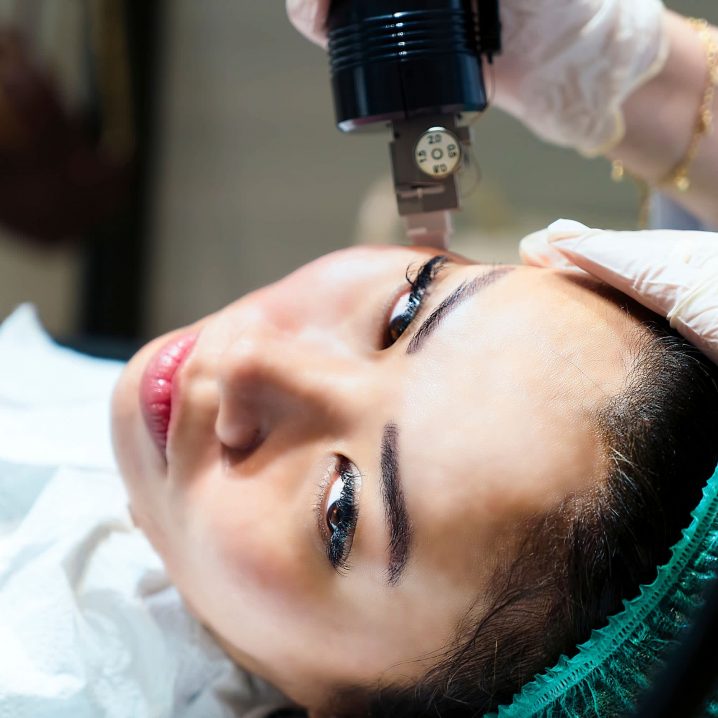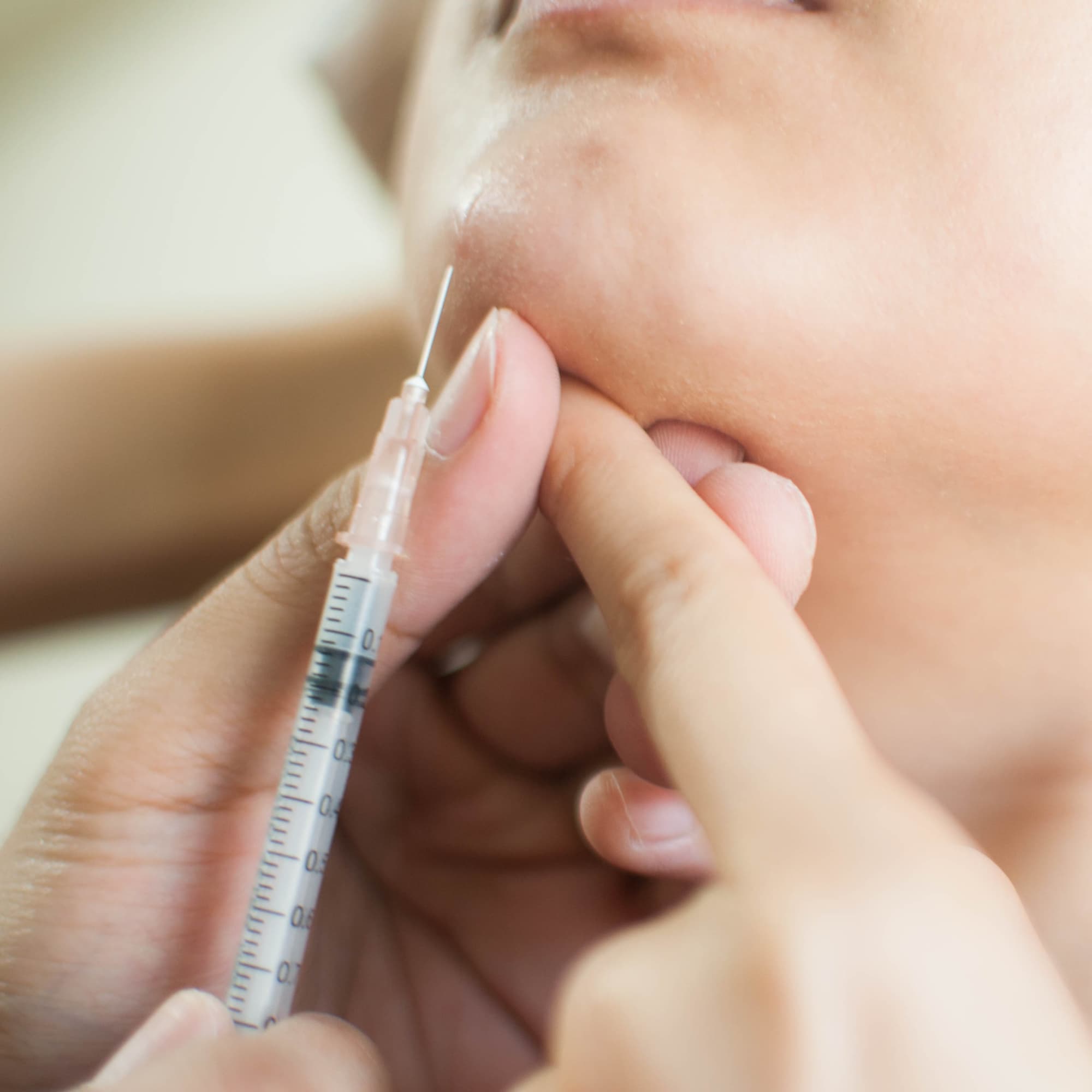
- POPSUGAR Australia
- Beauty
- Is Microneedling Safe? All Your Questions About Skin Needling Answered
Is Microneedling Safe? All Your Questions About Skin Needling Answered

Microneedling also referred to as skin needling or skin needling Dermapen treatment, is a minimally invasive skin treatment that involves the use of a device that contains very fine needles. These needles are used to create tiny punctures in the skin, improving the appearance of wrinkles, scars, and stretch marks.
Microneedling has become popular in recent years, considered by some to be a safe alternative to injectables, providing similar results to treatments like Botox.
There are a number of benefits associated with this treatment – we will discuss the various benefits of microneedling and how it can help improve the appearance of your skin.
What Is Microneedling and What Are the Benefits of Microneedling for Your Skin?
Dermapen microneedling is a minimally invasive skin treatment that involves the use of a handheld device that has 12-14 micro-needles. The size of the needles ranges from 0.5mm to 1.0mm for the treatment of fine lines and wrinkles, and 1.5-2.5mm for the treatment of acne scarring.
These needles are used to create controlled micro-injuries to the skin in order to promote collagen production and neocollagenesis. As a result, this can help improve the appearance of wrinkles, scars, and stretch marks. Additionally, microneedling can also be helpful for improving skin tone, texture, and pore size.
Related: Microdermabrasion vs Microneedling — How to Tell Which Treatment Is Best For You
How Does Microneedling Work?
Dermapen microneedling is a popular treatment for acne scars, wrinkles, and other skin concerns.
Microneedling uses small needles to create microscopic injuries in the skin. This triggers the body’s natural healing response, which stimulates the production of collagen and elastin. As these new proteins are produced, they help to fill in acne scars and smooth out wrinkles.
Dermapen treatments are usually performed every four to six weeks. Some people may see results after just one treatment, but most will need a series of treatments to get the best results.
What Are the Side Effects of Microneedling?
Dermapen microneedling is a relatively new treatment that has been shown to have a lot of benefits for the skin. However, like any other type of treatment, it also has some potential side effects.
There are a number of potential side effects associated with microneedling, though most are mild and temporary. These can include redness, itching, pinpoint bleeding, bruising, and slight swelling. In rare cases, more serious complications can occur, such as infection or scarring. It is always important to follow the instructions of your physician when undergoing any sort of treatment and to report unusual side effects immediately.
Who Is Dermapen Microneedling Best for?
Microneedling is a truly multi-purpose treatment. Anyone wanting to address fine lines, pigmentation, or uneven skin texture will benefit from the treatment. Some of the most striking results of microneedling can be seen in individuals with deep acne-scarring (referred to as “ice pick” scars).
The penetration of the needle has been clinically demonstrated to stimulate collagen and elastin, decreasing the depth of acne scars, and improving pigmentation.
Microneedling has also emerged as a popular treatment for men. Men are one of the fastest growing consumer groups for skincare and beauty, as reported by Allied Market Research.
Men are increasingly looking for treatments that give them smooth, even skin without resorting to treatments like Botox and filler. They also typically have a 20% thicker epidermis, compared to women. This means they can tolerate more microneedling treatments and generally find them less painful.
Related: RF Microneedling Promises Smooth, Poreless Skin – But Is It Worth The Splurge?
Who Should Not Undergo Dermapen Microneedling?
There are certain skin conditions that make someone a poor candidate for skin-needling treatments. Anyone with active acne should not undergo the treatment, as it could spread bacteria and cause further breakouts.
The same goes for people with open wounds or cuts on the face, as well as those who have sunburns, cold sores or herpes outbreaks. In addition, those who are taking blood thinners such as aspirin or other similar medicine should not have microneedling done, as they may bleed excessively during the procedure. Finally, anyone who has a history of keloids (raised scars) may also want to avoid dermapen microneedling, as it could exacerbate this condition.
How to Prepare for Your Microneedling Treatment?
Here are a few things you can do to prepare for your microneedling treatment:
1. Cleanse your skin thoroughly before the procedure – this will help to reduce the risk of infection.
2. Avoid using any exfoliating products or acids in the week leading up to your treatment.
3. If you are prone to cold sores, inform your therapist prior to treatment as you may require a prescribed antiviral cream to prevent them from developing post-treatment.
4. Avoid sun exposure, or solarium tanning, in the weeks in the days leading up to your procedure as this can make the skin more sensitive. Continue to avoid it for 3 weeks post procedure as your skin will be more prone to burning and pigmentation. Avoid makeup for 24 hours post-treatment.
5. Come to your appointment with a clean face – makeup and oils can interfere with the efficacy of the treatment.
Related: This Firming Serum Helps Me Go Longer Between Botox Appointments
What to Expect During and After Your Microneedling Treatment
Microneedling treatments generally take around 30 minutes. During the procedure, your aesthetician will clean your skin and apply a numbing cream. They will then pass the dermapen or microneedling device over your skin to puncture it with tiny needles. After the treatment, your skin may be red and sensitive, you could even see some residual blood on the skin.
These side effects are temporary and should resolve within a few hours. It is important to avoid sun exposure and harsh skincare products immediately after the treatment in order to minimise the risk of irritation.
Michelle Morgan, from B Clinic in Brisbane, has been in the health and beauty industry for many years. Mostly as a writer, contributor, and researcher in this industry, Michelle has over 10 years of experience.


